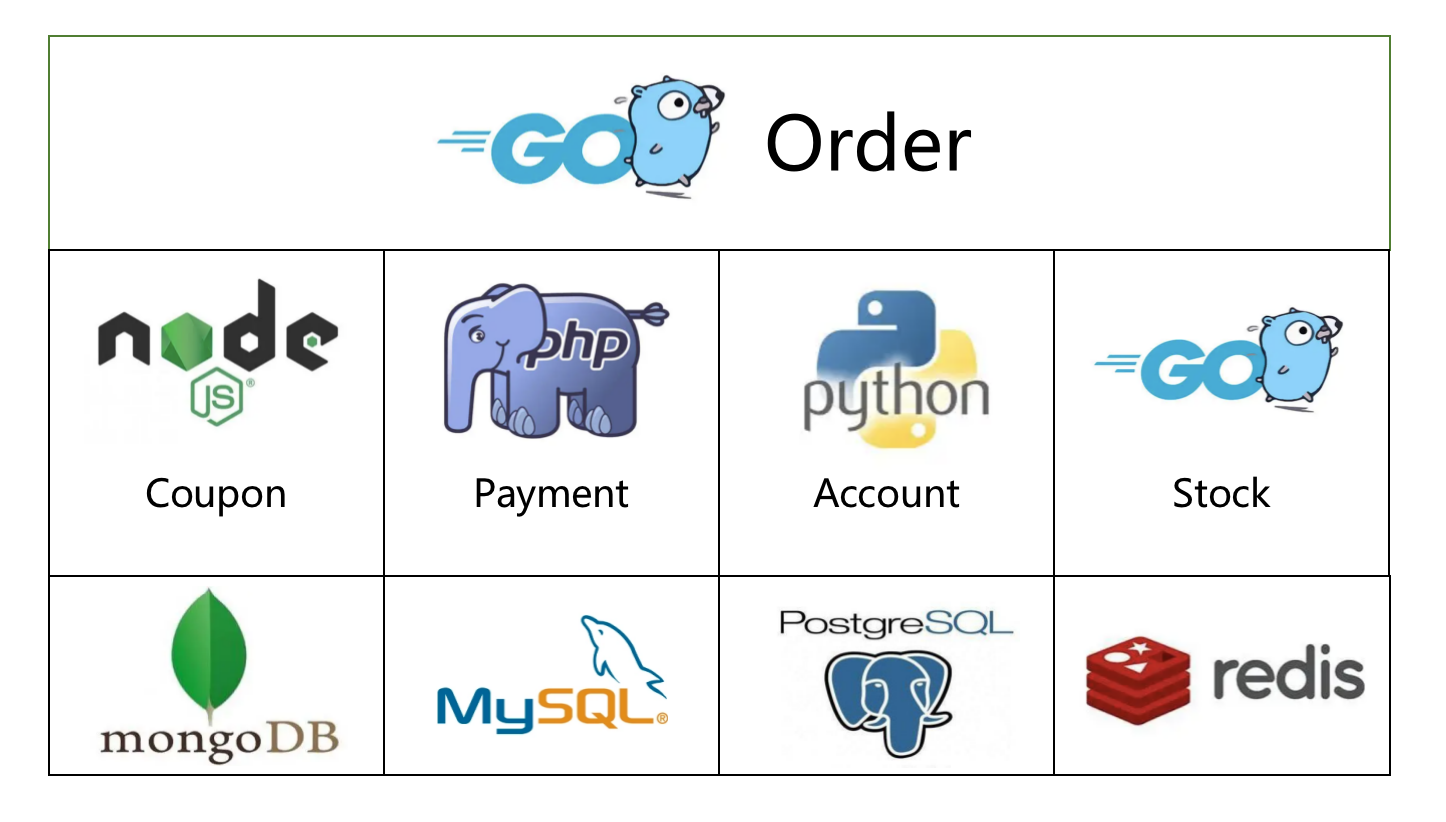https://github.com/yedf/dtm
A distributed transaction framework, supports workflow, saga, tcc, xa, 2-phase message, outbox patterns, supports many languages.
https://github.com/yedf/dtm
cadence csharp database distributed distributed-transactions dtm go golang java microservice outbox saga seata tcc transaction transactions workflow-engine xa
Last synced: 8 months ago
JSON representation
A distributed transaction framework, supports workflow, saga, tcc, xa, 2-phase message, outbox patterns, supports many languages.
- Host: GitHub
- URL: https://github.com/yedf/dtm
- Owner: dtm-labs
- License: bsd-3-clause
- Created: 2021-05-16T00:56:28.000Z (almost 5 years ago)
- Default Branch: main
- Last Pushed: 2025-05-04T14:31:41.000Z (10 months ago)
- Last Synced: 2025-06-19T20:14:16.227Z (8 months ago)
- Topics: cadence, csharp, database, distributed, distributed-transactions, dtm, go, golang, java, microservice, outbox, saga, seata, tcc, transaction, transactions, workflow-engine, xa
- Language: Go
- Homepage: http://d.dtm.pub
- Size: 3.48 MB
- Stars: 10,542
- Watchers: 102
- Forks: 986
- Open Issues: 75
-
Metadata Files:
- Readme: README.md
- License: LICENSE
Awesome Lists containing this project
- go-awesome - DTM - 跨语言的分布式事务管理服务,支持TCC、Saga、XA等 (开源类库 / 数据库)
- awesomeLibrary - dtm
- go-awesome - DTM - Cross-language distributed transaction management service supporting TCC, Saga, XA, etc. (Open source library / Database)
- go-awesome-with-star-updatetime - dtm - A distributed transaction manager. Support XA, TCC, SAGA, Reliable Messages. (Database / Advanced Console UIs)
README


[](https://codecov.io/gh/dtm-labs/dtm)
[](https://goreportcard.com/report/github.com/dtm-labs/dtm)
[](https://pkg.go.dev/github.com/dtm-labs/dtm)
[](https://github.com/avelino/awesome-go#database)
English | [简体中文](https://github.com/dtm-labs/dtm/blob/main/helper/README-cn.md)
# Distributed Transactions Manager
## What is DTM
DTM is a distributed transaction framework which provides cross-service eventual data consistency. It provides saga, tcc, xa, 2-phase message, outbox, workflow patterns for a variety of application scenarios. It also supports multiple languages and multiple store engine to form up a transaction as following:

## Who's using DTM (partial)
[Tencent](https://en.dtm.pub/other/using.html#tencent)
[Bytedance](https://en.dtm.pub/other/using.html#bytedance)
[Ivydad](https://en.dtm.pub/other/using.html#ivydad)
[More](https://en.dtm.pub/other/using.html)
## Features
* Support for multiple transaction modes: SAGA, TCC, XA, Workflow, Outbox
* Multiple languages support: SDK for Go, Java, PHP, C#, Python, Nodejs
* Better Outbox: 2-phase messages, a more elegant solution than Outbox, support multi-databases
* Multiple database transaction support: MySQL/MariaDB, Redis, MongoDB, Postgres, TDSQL, etc.
* Support for multiple storage engines: MySQL/MariaDB (common), Redis (high performance), BoltDB (dev&test), MongoDB (under planning)
* Support for multiple microservices architectures: [go-zero](https://github.com/zeromicro/go-zero), go-kratos/kratos, polarismesh/polaris
* Support for high availability and easy horizontal scaling
## Application scenarios.
DTM can be applied to data consistency issues in a large number of scenarios, here are a few common ones
* [cache management](https://en.dtm.pub/app/cache.html): thoroughly guarantee the cache final consistency and strong consistency
* [flash-sales to deduct inventory](https://en.dtm.pub/app/flash.html): in extreme cases, it is also possible to ensure that the precise inventory in Redis is exactly the same as the final order created, without the need for manual adjustment
* [Non-monolithic order system](https://en.dtm.pub/app/order.html): Dramatically simplifies the architecture
* [Event publishing/subscription](https://en.dtm.pub/practice/msg.html): better outbox pattern
## [Cook Book](https://en.dtm.pub)
## Quick start
### run dtm
``` bash
git clone https://github.com/dtm-labs/dtm && cd dtm
go run main.go
```
### Start an example
Suppose we want to perform an inter-bank transfer. The operations of transfer out (TransOut) and transfer in (TransIn) are coded in separate micro-services.
Here is an example to illustrate a solution of dtm to this problem:
``` bash
git clone https://github.com/dtm-labs/quick-start-sample.git && cd quick-start-sample/workflow-grpc
go run main.go
```
## Code
### Usage
``` go
wfName := "workflow-grpc"
err = workflow.Register(wfName, func(wf *workflow.Workflow, data []byte) error {
// ...
// Define a transaction branch for TransOut
wf.NewBranch().OnRollback(func(bb *dtmcli.BranchBarrier) error {
// compensation for TransOut
_, err := busiCli.TransOutRevert(wf.Context, &req)
return err
})
_, err = busiCli.TransOut(wf.Context, &req)
// check error
// Define another transaction branch for TransIn
wf.NewBranch().OnRollback(func(bb *dtmcli.BranchBarrier) error {
_, err := busiCli.TransInRevert(wf.Context, &req)
return err
})
_, err = busiCli.TransIn(wf.Context, &req)
return err
}
// ...
req := busi.BusiReq{Amount: 30, TransInResult: ""}
data, err := proto.Marshal(&req)
// Execute workflow
_, err = workflow.ExecuteCtx(wfName, shortuuid.New(), data)
logger.Infof("result of workflow.Execute is: %v", err)
```
When the above code runs, we can see in the console that services `TransOut`, `TransIn` has been called.
#### Rollback upon failure
If any forward operation fails, DTM invokes the corresponding compensating operation of each sub-transaction to roll back, after which the transaction is successfully rolled back.
Let's purposely trigger the failure of the second sub-transaction and watch what happens
``` go
// req := busi.BusiReq{Amount: 30, TransInResult: ""}
req := busi.BusiReq{Amount: 30, TransInResult: "FAILURE"}
})
```
we can see in the console that services `TransOut`, `TransIn`, `TransOutRevert` has been called
## More examples
If you want more quick start examples, please refer to [dtm-labs/quick-start-sample](https://github.com/dtm-labs/quick-start-sample)
The above example mainly demonstrates the flow of a distributed transaction. More on this, including practical examples of how to interact with an actual database, how to do compensation, how to do rollback, etc. please refer to [dtm-examples](https://github.com/dtm-labs/dtm-examples) for more examples.
## Give a star! ⭐
If you think this project is interesting, or helpful to you, please give a star!